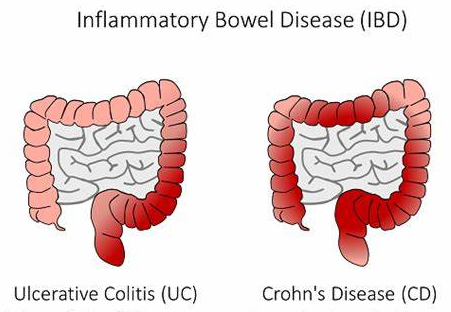Researchers at Washington University School of Medicine analyzed gene expression patterns in colon tissue from patients with ulcerative colitis and Crohn's disease. They found that the activity of the coagulation-related protein PAI-1 was elevated in patients with severe inflammatory bowel disease.
The researchers performed transcriptome analysis on colon biopsies. They found that more than 1,770 genes in IBD patients were dysregulated compared to controls. This group of genes focuses on genes involved in blood clotting or hemostasis. The researchers pointed out that this may also be the cause of increased risk of thrombosis in patients with IBD.
Later, they further narrowed the target range through network analysis and biological pathway analysis. They focused on the SERPINE1 gene because it is associated with inflammation and intestinal epithelium. This gene encodes the PAI-1 protein, a key protein responsible for blood clotting.
The researchers found that the expression of SERPINE1 was increased in the IBD colon tissue collected at the inflamed site compared to the site of remission or unaffected sites. They further identified a group of 380 genes whose expression is related to SERPINE1. In a mouse model of colitis, they found that the expression of PAI-1 exacerbated the symptoms of the disease.
For patients with severe disease and those who are resistant to anti-TNF therapy, researchers have found that elevated levels of PAI-1 are more common.
Through more mouse studies, they found that PAI-1 promotes inflammation through interaction with tissue plasminogen activator (tPA) protein, which typically prevents colitis and mucosal damage. PAI-1 aggravates mucosal damage by blocking tPA-mediated cleavage and activation of anti-inflammatory TGF-β.
The researchers reported that inhibition of PAI-1 reduces mucosal damage and inflammation. In mice they used small molecule MDI-2268 to block PAI-1, a reduction in mucosal damage and inflammation. It is particularly worth mentioning that this approach restores the activity of TGF-β and increases the ratio of active tPA to total tPA in plasma and colon tissue.
These results suggest that increased levels of PAI-1 may lead to more aggressive disease, suggesting that it is expected to be a therapeutic target. "The exciting thing is that SERPINE-1 and its proteins appear to be the most expressed in patients with the most severe conditions and no response to immunosuppressive therapy," the researcher said.
EIAAB SCIENCE INC, WUHAN has developed SERPINE1 protein, antibody and ELISA kit.
Welcome scientific research workers to choose and purchase.








